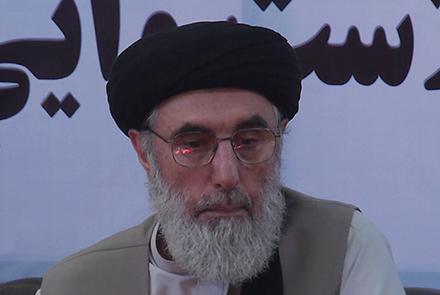The return to Afghanistan of Hizb-e-Islami leader Gulbuddin Hekmatyar – who signed a peace deal with Afghan government last year – was on Saturday met with mixed reaction among analysts, businessmen and university lecturers.
A number of them said they believe that Hekmatyar’s return, after 20 years, would have a positive impact on peace in the country while others said they were concerned about the future of peace and stability in Afghanistan following his arrival.
“I do not think that it [the return of Hekmatyar] would have a key impact on the peace process, because a number of branches of Hizb-e-Islami are already in government and are working with the administration,” said Massoud Raghib, a military affairs analyst.
The civil war and the looting of public property in the late 1970s after Dr Najibullah’s government was toppled were the main issues that sparked criticism.
However, today the people have a different point of view on the consequences of possible disagreements between leaders of the country.
“Things are now very different. For instance, today [Abdul Rab Rasul] Sayyaf and other mujahedeen leaders who are in Afghanistan have joined the government. They respect the peace process, governance and the Constitution. They love their country and always have stood against the enemies,” said Mawla Mohammad Paiman, a local businessman.
Meanwhile, there are concerns of a possible increase in the country’s problems following Hekmatyar’s move to join the peace process and government.
“It will not be in Afghans favor and we will face more disorder and problems in the future if political disagreements between government and Hizb-e-Islami are increased instead of being resolved completely. If this happens, we will experience the situation which we did two decades ago,” said Hekmatullah Shahbaz, a university lecturer.
This comes after Hekmatyar returned to Kabul this weekend, following a lengthy delay. However, only a few sections of the peace deal between government and Hizb-e-Islami have not been implemented – including the release the group’s prisoners.
Looking back at 1996, when Hekmatyar returned to Kabul with his caravan, he had a different view about mujahideen and his talks with the Taliban.
“We talked with the Taliban and they are also interested in participating in the discussions. But they want everything to be kept secret and behind closed doors. We said in every affair we want explanations and clarity,” Hekmatyar said in one of his interviews with the media in March 1996.
“I prefer a simple mujahid than those important figures who have become well-known by BBC and VOA. I accept the government of that simple mujahid; not of those important figures,” Hekmatyar said in another interview when he returned to Kabul with his forces in 1996.
In recent years, Hekmatyar sent a video message where he said the exclusion of his name from the U.S blacklist would be a sad moment for him. However, his party has now asked for the removal of his name from the list.
“If America removes my name from the blacklist while its troops are still in Afghanistan, it will be a very sad moment for me,” Hekmatyar said in a video message released last year before the group signed the peace deal with the Afghan government.


